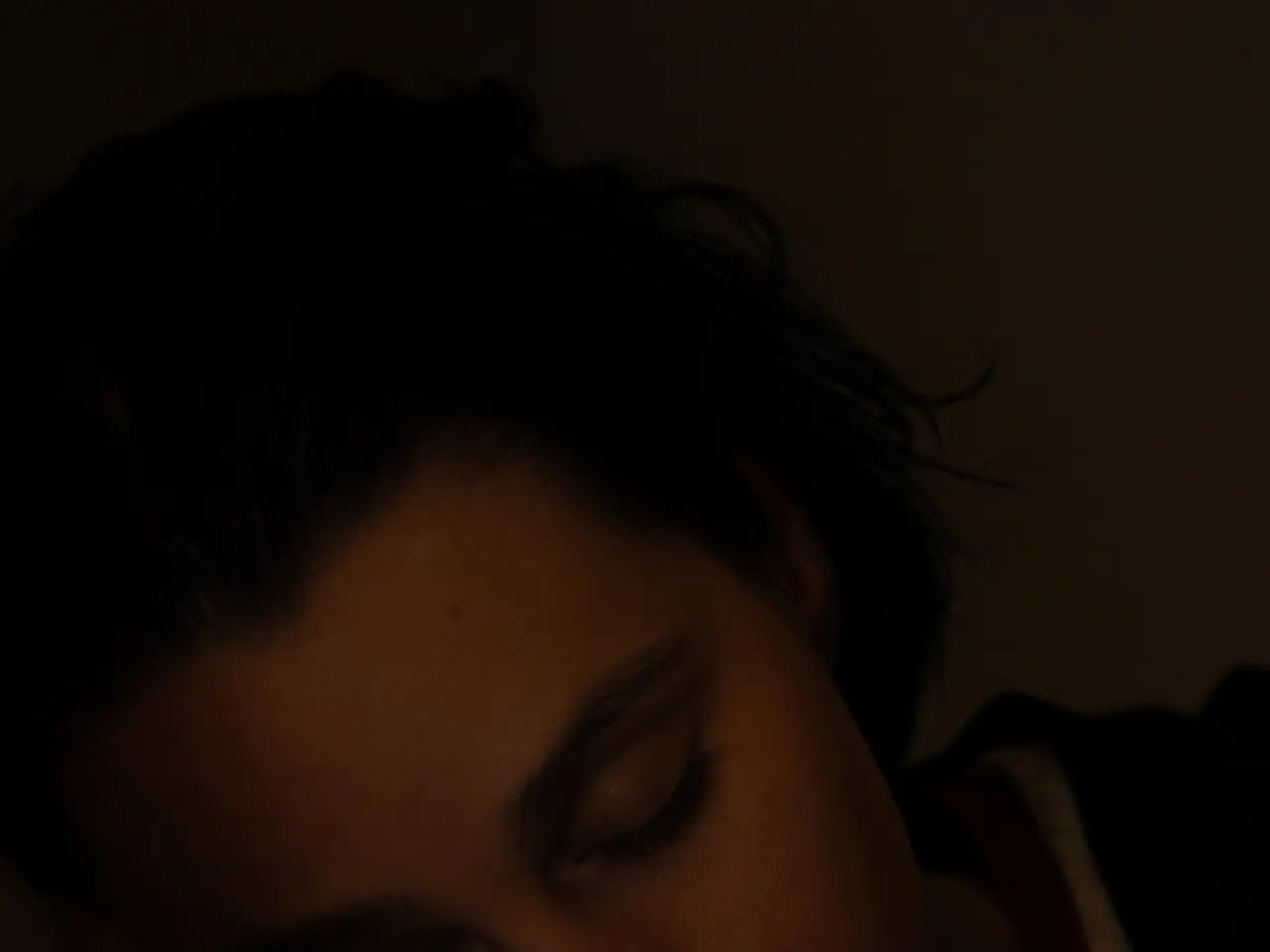Exploring the perilous phenomenon: Delving into the widespread 'sleepmaxxing' movement found online
In the realm of health trends, a new phenomenon known as sleepmaxxing has been gaining traction, particularly on social media platforms like TikTok and X. This trend, which promises to improve sleep quality through various methods, has sparked debate among medical experts due to its lack of strong scientific evidence and potential dangers.
One of the most controversial practices within sleepmaxxing is mouth taping. Proponents claim that this method encourages nasal breathing, improves sleep quality, reduces snoring, and enhances oral health. However, a report from George Washington University found that most of these claims are not supported by medical research[1]. Experts have warned that mouth taping could be particularly dangerous for individuals with sleep apnea, a condition where breathing is disrupted during sleep, as taping the mouth might worsen airway obstruction or breathing difficulty[2][3].
Another extreme practice popularized on social media is neck swinging, where individuals hang by the neck with ropes or belts and swing their bodies. Some users claim it helps insomnia, but medical experts have raised alarms about its safety, citing reports of a fatality in China linked to a similar "neck hanging" routine[2][3]. This method is considered ridiculous, harmful, and evidence-free by health authorities and misinformation experts.
Kathryn Pinkham, an insomnia specialist based in Britain, has expressed concern about the sleepmaxxing trend on TikTok, stating that much of the advice shared can be unhelpful and even damaging for people struggling with sleep issues[4]. While some "sleepmaxxing" tips might be harmless for those who generally sleep well, they can increase pressure and anxiety for those dealing with chronic insomnia or other persistent sleep problems.
The pursuit of "perfect sleep" is embedded in the sleepmaxxing culture, which can heighten anxiety or orthosomnia—an obsessive focus on achieving flawless sleep—which may worsen existing sleep problems rather than improve them[1]. Timothy Caulfield, a misinformation expert from the University of Alberta, has described "neck hanging" as "ridiculous, potentially harmful, and evidence-free."
The explosive rise of sleepmaxxing underscores social media's power to legitimize unproven health practices, particularly as tech platforms scale back content moderation. However, medical experts caution against adopting these extreme, unproven sleep hacks endorsed by social media without professional guidance[1][2][3].
In Britain, melatonin is available only as a prescription drug, and its use for sleep enhancement may violate legal norms when promoted by influencers. The American Academy of Sleep Medicine has recommended against using melatonin to treat insomnia in adults, citing inconsistent medical evidence regarding its effectiveness[5].
In conclusion, the sleepmaxxing trend, with its focus on extreme bedtime routines claiming to improve sleep quality, may be contributing to orthosomnia and normalizing unproven health practices. Medical evidence does not support the benefits claimed by sleepmaxxing influencers for mouth taping and neck swinging, and these practices carry real safety risks, especially for those with breathing issues during sleep and those who engage in dangerous practices like neck swinging. Experts warn against adopting these extreme, unproven sleep hacks without professional guidance.
Sources: [1] George Washington University Report: https://gwumc.edu/news/news-detail/articles/gw-researchers-evaluate-sleep-aids-used-by-social-media-influencers/ [2] ABC News: https://abcnews.go.com/Health/wellness/neck-hanging-trend-dangerous-experts-warn/story?id=75405712 [3] Harvard Health: https://www.health.harvard.edu/staying-healthy/the-dangers-of-sleep-hacks [4] The Telegraph: https://www.telegraph.co.uk/health-fitness/body/tiktok-influencers-promoting-unproven-sleep-aids-warns-expert/ [5] American Academy of Sleep Medicine: https://aasm.org/resources/clinical-guideline-for-the-use-of-hypnotics-in-insomnia-adult-patients-an-update-of-the-2005-guideline/
- In response to the increasing popularity of sleep hacks on social media, a report from George Washington University scrutinizes the validity of sleepmaxxing techniques, including mouth taping and neck swinging.
- The George Washington University report reveals that many claims associated with mouth taping, like improving sleep quality and oral health, lack medical support.
- Medical authorities caution against dangerous practices like neck swinging, which has been linked to fatalities, and label it as ridiculous and evidence-free.
- In the UK, melatonin use as a sleep aid is regulated and may violate legal norms when endorsed by social media influencers.
- The American Academy of Sleep Medicine advises against using melatonin to treat insomnia in adults due to inconsistent medical evidence regarding its effectiveness.
- Experts call for caution in adopting extreme and unproven sleep hacks endorsed on social media platforms without professional guidance, as they may normalize unproven health practices, contribute to orthosomnia, and pose real safety risks.




